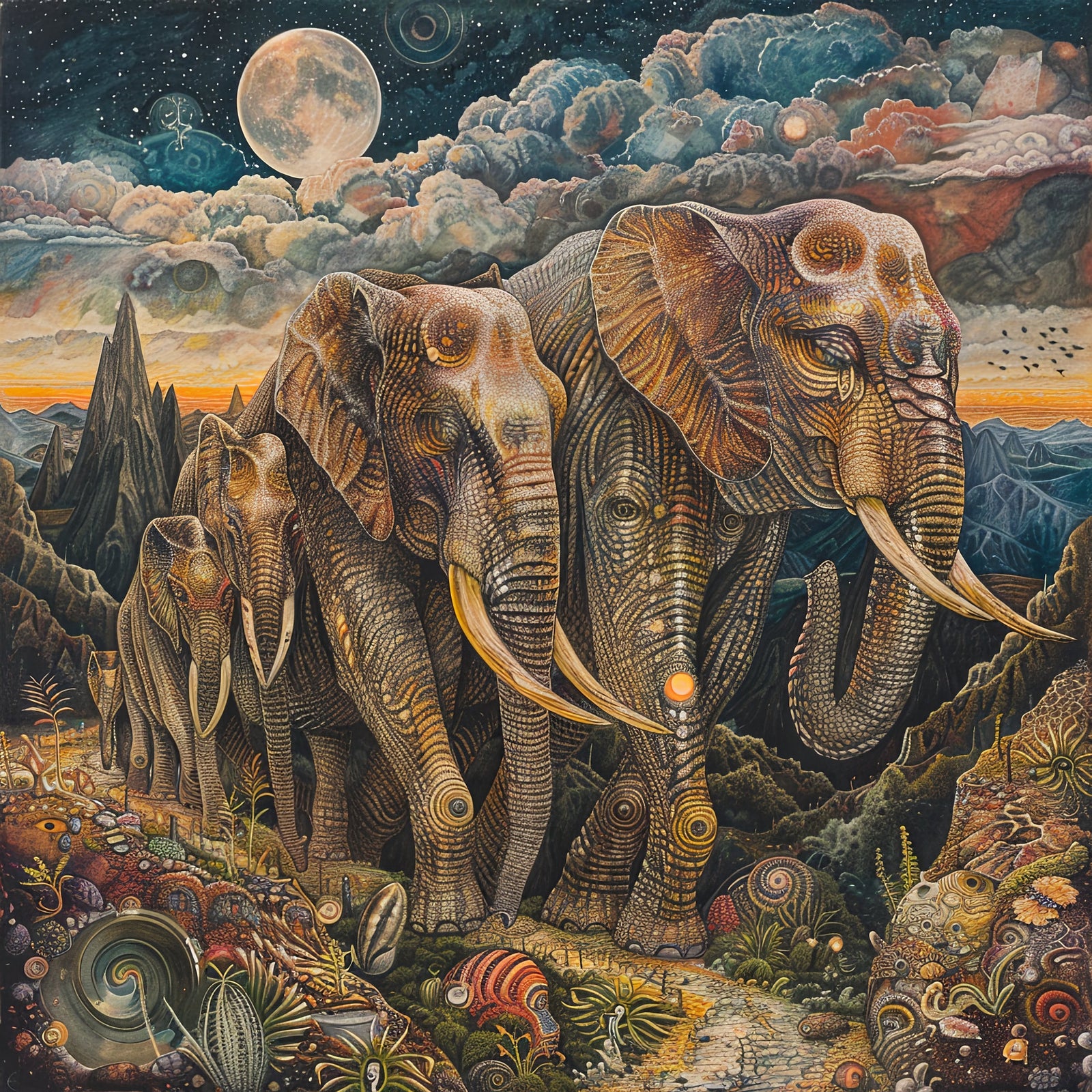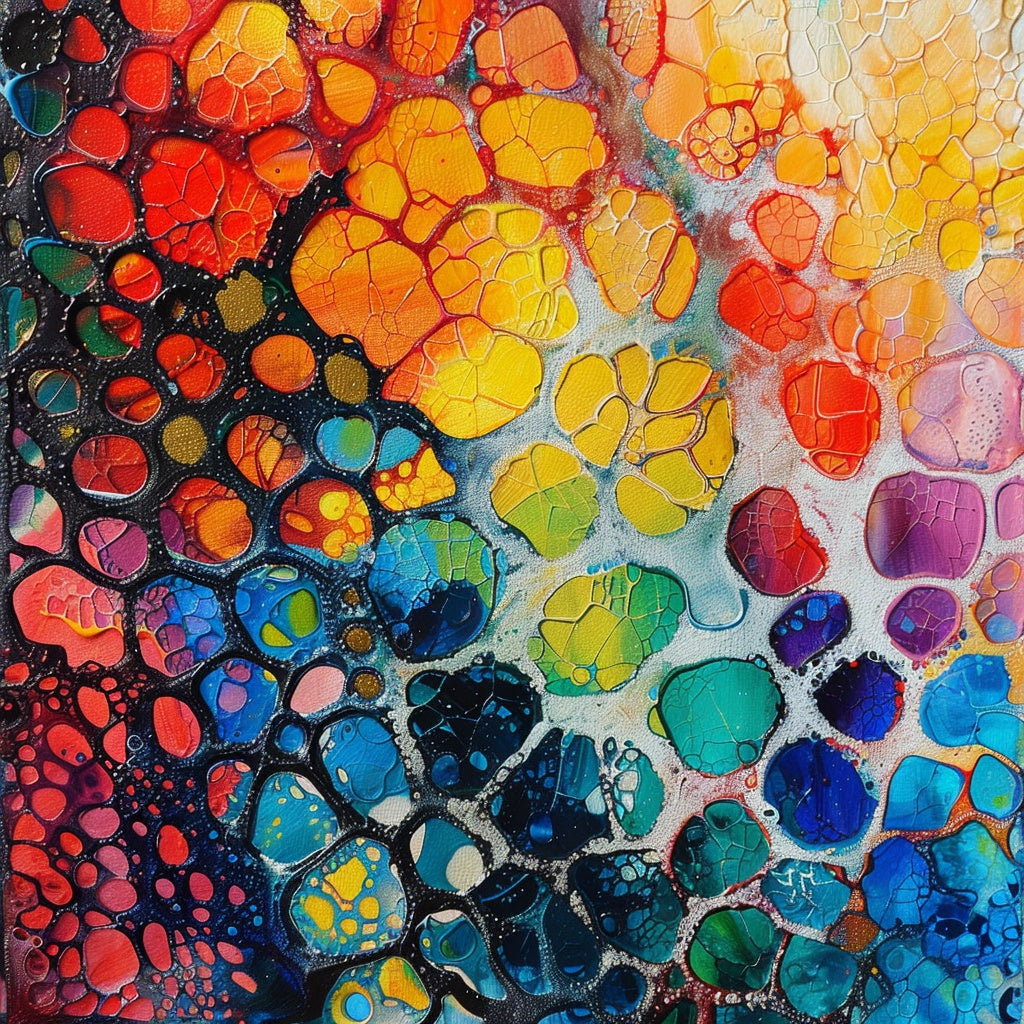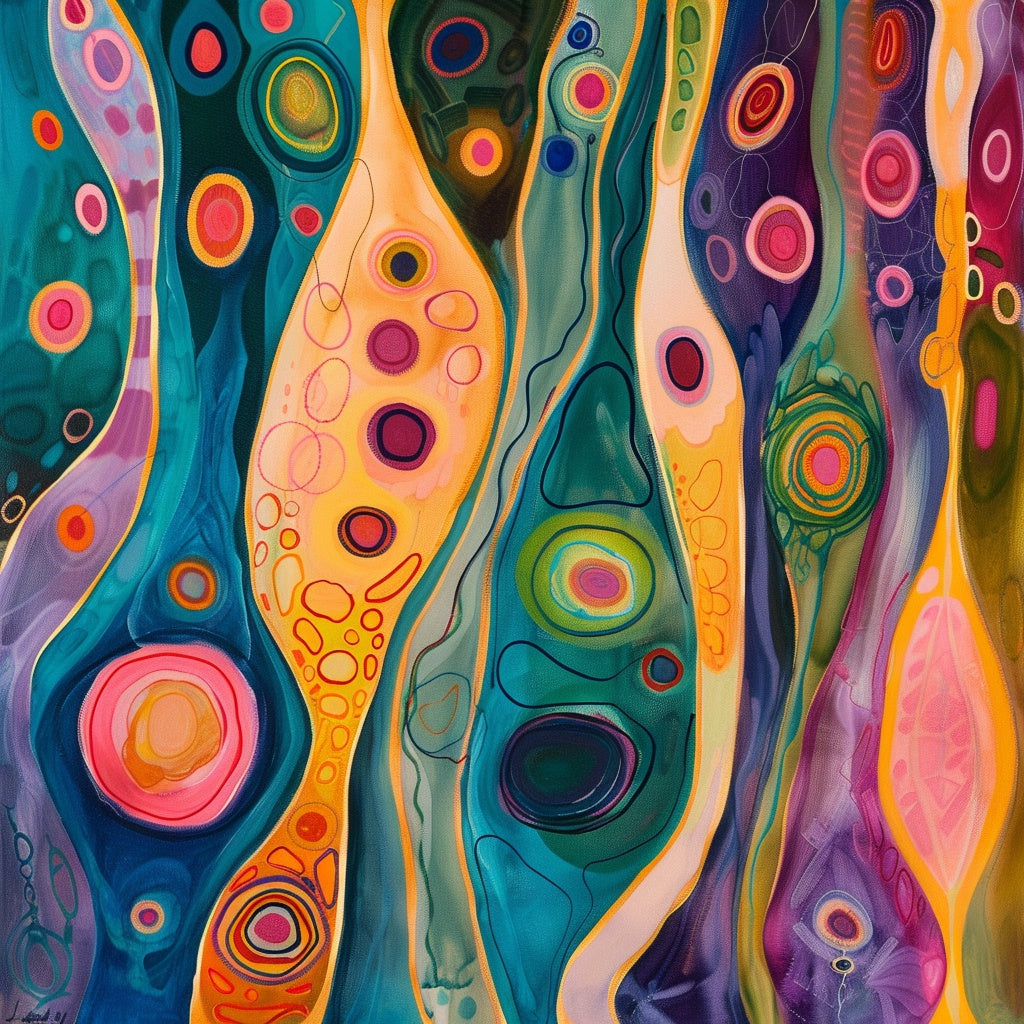The AI Revolution in Art: A New Era of Creativity
Artificial intelligence is rapidly transforming the art world, challenging traditional notions of creativity and artistic expression. This post explores how AI art influences public perception and understanding of art, examining its impact on the creative landscape and the art market.
Table of Contents
- Introduction
- AI Art: A New Frontier in Artistic Expression
- AI as a Research Tool in the Art World
- Public Perception of AI Art: A Mixed Response
- Challenging Traditional Definitions of Art
- Limitations of AI in Artistic Creativity
- AI Art in Education and Outreach
- Integrating AI into Art Curricula
- AI Art in Outreach Programs
- Examples of AI Art Sparking Public Debate
- Conclusion: Embracing the Future of Art
- Footnotes
Introduction
The rise of AI art has ignited a compelling debate about the essence of art, creativity, and the artist's role in the modern era [1]. Much like the advent of photography in the 19th century, which initially sparked fears among painters, AI art challenges long-held views of artistic expression. It forces a reevaluation of how we perceive and understand art [1]. This article examines the complex ways AI art is changing public perception and understanding of art, considering both the challenges and the opportunities it brings.
AI Art: A New Frontier in Artistic Expression
AI art, created through algorithms and machine learning models, has quickly moved from a technological novelty to a significant force reshaping the creative world [2]. AI art creators, such as Generative Adversarial Networks (GANs) and the DeepArt algorithm, analyze large datasets of images, text, and music to produce original, visually striking artworks [2]. These AI systems can mimic existing art styles or develop entirely new ones, pushing the limits of what is possible in art [2].
AI as a Research Tool in the Art World
AI is also a powerful research tool in the art world. Galleries use AI to analyze large amounts of data, significantly speeding up tasks such as cataloging and authentication [3]. What once took days can now be done in seconds [3]. Additionally, AI analyzes market trends, understands collector behaviors, and predicts future art market developments [3]. AI provides valuable insights by identifying patterns in historical records and auction catalogs [3]. The growth of AI art has led to a surge in exhibitions and discussions about its place in the art world [3]. An Artsy report indicated that the number of art exhibitions featuring AI-created works increased by 220% between 2017 and 2019 [3]. This increasing presence of AI art in galleries and museums is gradually exposing the public to this new form of artistic expression.
Public Perception of AI Art: A Mixed Response
Public perception of AI art is complex, with a mix of enthusiasm and skepticism [4]. While some view it as a groundbreaking innovation, others express concerns [4]. An Academy of Animated Art survey revealed that only 27% of Americans have seen AI-generated art [4]. Among those, 76% do not believe it should be considered "art" [4]. This suggests that many people are either unfamiliar with AI art or hesitant to accept it as a genuine form of artistic expression [4]. Studies using eye-tracking technology have also uncovered an implicit bias against AI art. Even when participants are unaware that a piece was AI-generated, they tend to look at it for less time than art they believe was created by humans [5]. This suggests that subconscious biases may influence how people perceive and value AI art [5]. However, there are also signs of increasing acceptance and appreciation. Among those who have seen AI art, 56% find it enjoyable [5]. This indicates that as exposure to AI art grows, so too might appreciation for its unique qualities [5]. Studies show that viewers can experience a range of emotions and find meaning in abstract AI-generated art, suggesting AI can evoke similar aesthetic responses to human-created art [5].
Challenging Traditional Definitions of Art
AI art challenges traditional definitions of art by blurring the lines between human and machine creativity [6]. It raises fundamental questions about the role of intention, emotion, and personal expression in art [6]. A core question is whether a machine, lacking personal experience and subjective interpretation, can truly create art like a human does [6]. This question goes to the heart of what it means to be creative [6]. The fact that AI art often draws inspiration from existing artworks and styles adds another layer of complexity [7]. AI models are trained on vast datasets of images, which can include copyrighted works [7]. This raises concerns about plagiarism and AI art's potential to infringe on human artists' intellectual property rights [7]. However, supporters of AI art argue that it is simply a new tool for artistic expression, similar to photography or digital editing software [7]. They highlight AI's potential to help artists explore new ideas and push the boundaries of their creativity [7].
Limitations of AI in Artistic Creativity
While AI models can analyze large datasets and produce works that mimic artistic styles, they lack the deep understanding, emotional depth, and natural creativity that defines human artistry [8]. AI-generated art often reflects patterns learned from existing works rather than originating from a genuine creative spark [8]. Additionally, AI models are limited by the data they are trained on and may struggle to produce unique or culturally diverse artworks if the training dataset is biased or limited [8].
AI Art in Education and Outreach
AI art is not only changing the art world but is also making its way into education and outreach programs [9]. Universities and colleges are integrating AI art into their curricula, offering courses and certificates exploring AI's creative applications [9]. These programs aim to provide students with the skills needed to navigate the increasingly digital art world while maintaining a strong foundation in traditional artistic practices [9].
Integrating AI into Art Curricula
Many educational programs emphasize the collaborative potential of AI, encouraging students to see AI as a tool that can enhance their artistic vision rather than replace it [10]. Institutions like MIT, the Royal College of Art, and NYU offer programs that explore the intersection of art, design, and computer science, with a focus on the creative applications of AI [10]. For example, the Ringling College of Art and Design is one institution that has incorporated AI into its art curriculum [9].
AI Art in Outreach Programs
AI art is also being used in outreach programs to engage the public with new forms of artistic expression and spark discussions about the role of technology in society [10]. Initiatives like the AI Art Bootcamp for Teachers and Librarians provide educators with the knowledge and resources to integrate AI art into their programs and foster creativity and critical thinking among students [10]. These programs aim to make AI art more accessible and understandable to a wider audience [10].
Examples of AI Art Sparking Public Debate
Several AI art projects have sparked public debate and brought attention to the complex issues surrounding this new form of creativity [11].
- One notable example is "Théâtre D'opéra Spatial," an AI-generated artwork that won first place in the Digital Arts category at the Colorado State Fair in 2022 [11]. This victory sparked controversy about whether AI-generated art should compete in traditional art competitions and raised questions about artistic authorship [11].
- Another prominent example is "Portrait of Edmond de Belamy," created by the Paris-based collective Obvious [12]. This AI-generated portrait, made using a Generative Adversarial Network (GAN) trained on 15,000 portraits from the 14th to the 20th centuries, sold for $432,500 at a Christie's auction in 2018 [12]. This sale highlighted the growing market interest in AI art and sparked discussions about its value and originality [12].
- The case of Boris Eldagsen, who won a Sony World Photography Award in 2023 for an AI-generated image titled "The Electrician," further fueled the debate [12]. Eldagsen ultimately refused the award, aiming to spark a larger conversation about the future of photography and the role of AI in art [12]. These examples illustrate how AI art pushes the boundaries of artistic expression and challenges our understanding of what it means to create and appreciate art [12].
Conclusion: Embracing the Future of Art
AI art undeniably influences public perception and understanding of art [13]. It challenges traditional definitions and prompts a reevaluation of the artist's role in the modern age [13]. While concerns and uncertainties remain, AI art presents exciting opportunities for creative exploration and collaboration [13]. AI art has the potential to democratize creativity and make art more accessible to a wider audience, empowering individuals of all skill levels to express themselves artistically [13]. The emergence of AI art is not just a technological advancement; it is a cultural phenomenon that invites us to reconsider the very nature of art and its role in human society [14]. It is a new chapter in the ongoing story of human creativity, filled with challenges and possibilities [14].
Footnotes
[1] AI's impact on art | News - Illinois Times, accessed January 30, 2025, https://www.illinoistimes.com/news-opinion/ais-impact-on-art-18636332
[2] Exploring the Future of AI Art Creators: A Comprehensive Guide - Ocoya, accessed January 30, 2025, https://www.ocoya.com/blog/ai-art-future
[3] The Impact Of Artificial Intelligence On The Art World - Forbes, accessed January 30, 2025, https://www.forbes.com/councils/forbesbusinesscouncil/2024/02/02/the-impact-of-artificial-intelligence-on-the-art-world/
[4] AI Art Statistics 2024 - Artsmart.ai, accessed January 30, 2025, https://artsmart.ai/blog/ai-art-statistics/
[5] Eyes can tell: Assessment of implicit attitudes toward AI art - PMC, accessed January 30, 2025, https://pmc.ncbi.nlm.nih.gov/articles/PMC10663653/, AI Art Statistics: The Ultimate List in 2024 - Academy of Animated Art, accessed January 30, 2025, https://academyofanimatedart.com/ai-art-statistics/
[6] Art in the Age of AI: The Changing Role of Artists - AGI Fine Art Blog, accessed January 30, 2025, https://agifineart.com/advice/art-in-the-age-of-ai-the-changing-role-of-artists/
[7] The Consequences of Artificial Intelligence Made Art - FHNtoday.com, accessed January 30, 2025, https://fhntoday.com/2024/02/28/the-consequences-of-artificial-intelligence-made-art/, AI-Generated Art: How Can Visual Artists Navigate This New Frontier of Creativity?, accessed January 30, 2025, https://artmarketingnews.com/ai-generated-art/
[8] What Is AI-Generated Art? | IxDF - The Interaction Design Foundation, accessed January 30, 2025, https://www.interaction-design.org/literature/topics/ai-generated-art
[15] The Future of AI Art and its Potential Interactions with the Art Industry - NHSJS, accessed January 30, 2025, https://nhsjs.com/2023/the-future-of-ai-art-and-its-potential-interactions-with-the-art-industry/
[16] The Impact of AI on Art: A Comparison with the Invention of Photography - Medium, accessed January 30, 2025, https://medium.com/@artofai251/the-impact-of-ai-on-art-a-comparison-with-the-invention-of-photography-75117a0c8e71
[17] AI Art Statistics 2024 - Artsmart.ai, accessed January 30, 2025, https://artsmart.ai/blog/ai-art-statistics/
[9] AI Art in Academia: A New Frontier in Creative Education - Just Think AI, accessed January 30, 2025, https://www.justthink.ai/blog/ai-art-in-academia-a-new-frontier-in-creative-education
[10] Education & Outreach - AI Institute for Societal Decision Making, accessed January 30, 2025, https://www.cmu.edu/ai-sdm/education-outreach/index.html, AI ART BOOTCAMP - Learning Revolution, accessed January 30, 2025, https://www.learningrevolution.com/ai-art-bootcamp
[11] Exploring the Controversy and Debate of AI-Generated Art - Pixel Gallery, accessed January 30, 2025, https://pixel-gallery.co.uk/blogs/pixelated-stories/controversial-ai-art-the-pieces-that-stirred-debate
[12] 10 Mind-Blowing Examples of AI-Generated Art - ClickUp, accessed January 30, 2025, https://clickup.com/blog/ai-art-examples/, Exploring the Controversy and Debate of AI-Generated Art - Pixel Gallery, accessed January 30, 2025, https://pixel-gallery.co.uk/blogs/pixelated-stories/controversial-ai-art-the-pieces-that-stirred-debate
[13] AI Art: Exploring the Pros, Cons, and Ethical Dimensions - Vision Factory, accessed January 30, 2025, https://www.visionfactory.org/post/ai-art-exploring-the-pros-cons-and-ethical-dimensions
[14] The Future of AI Art and its Potential Interactions with the Art Industry - NHSJS, accessed January 30, 2025, https://nhsjs.com/2023/the-future-of-ai-art-and-its-potential-interactions-with-the-art-industry/



Leave a comment (all fields required)